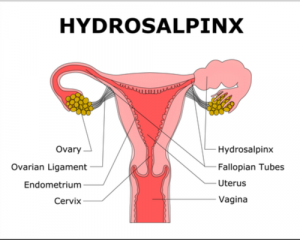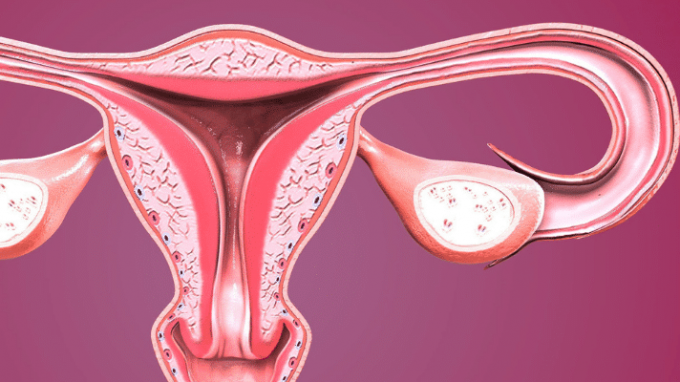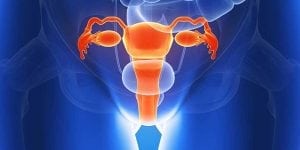There are many possible causes of infertility. Fallopian tube abnormalities are among them, but there may be treatments available to you.
If you are trying to get pregnant but have a problem with one of your fallopian tubes, you can face difficulty on your journey. Fallopian tube abnormalities are more common than you may think. It’s important to know what treatments are out there if you are affected by this medical condition.
Causes of Fallopian Tube Abnormalities
A wide range of factors can lead to fallopian tube abnormalities. Generally, the following conditions can cause a blockage or damage:
- Pelvic infections like pelvic inflammatory disease (PID)
- Intrauterine device (IUD) that leads to PID
- Ruptured appendix
- Pelvic or lower abdominal surgery
- Inflammation that causes damage to the fallopian tubes and uterus such as from infections like tuberculosis
- Ectopic pregnancy
- Endometriosis
- Bacteria from a sexually transmitted infection (STI)
To function properly, fallopian tubes must be healthy. With healthy fallopian tubes, conception typically occurs with muscular contractions guiding sperm to the woman’s egg. If there is a disruption that causes abnormalities, it can make it difficult to conceive.
 One of the most common types of abnormalities of the fallopian tubes is hydrosalpinx. This is a condition that causes at least one of the fallopian tubes to become blocked. The blockage comes from a watery fluid and is usually caused by an infection caused by an STI. Some women develop hydrosalpinx after having surgery near the uterus, such as an appendectomy. Others develop it as a result of endometriosis, a condition that causes endometrial tissue to spread to areas beyond the uterus.
One of the most common types of abnormalities of the fallopian tubes is hydrosalpinx. This is a condition that causes at least one of the fallopian tubes to become blocked. The blockage comes from a watery fluid and is usually caused by an infection caused by an STI. Some women develop hydrosalpinx after having surgery near the uterus, such as an appendectomy. Others develop it as a result of endometriosis, a condition that causes endometrial tissue to spread to areas beyond the uterus.
Symptoms of the Condition
Some women experience a slew of symptoms while others are asymptomatic. However, all women with the condition have one thing in common: they have difficulty getting pregnant because the egg is unable to travel down the affected fallopian tube. If an infection is causing the abnormality, it can affect both tubes by causing one or both to close.
Unfortunately, even if one of the fallopian tubes is normal, infertility may still be an issue. Fluid from the affected tube can make it difficult or even impossible for a fertilized egg to implant in the uterus.
Diagnosis
If your doctor suspects that you have hydrosalpinx or another abnormality of the fallopian tubes, laparoscopy is the best option for making a diagnosis and administering treatment.
When the fallopian tubes have been severely damaged, the best bet at conceiving is through in-vitro fertilization (IVF) after removing the fallopian tubes. Removal is necessary due to the fluid buildup in the tubes causing a toxic environment for the successful implantation of an embryo.
If you have endometriosis and your fallopian tube abnormalities stem from that, you can have alternate treatment in order to successfully conceive.
Sclerotherapy is a method of treatment that is similar to treatment used for varicose veins: The doctor drains the fluid from the fallopian tubes. Laparoscopic salpingostomy is another treatment that involves a tiny incision made in the fallopian tube to let the fluid drain. Afterward, the doctor clips the tube to prevent fluid from getting into the uterus. However, this treatment is temporary as the fluid can return.
Women who undergo one of these two treatments have around a 38-to-40 percent success rate with IVF pregnancies.
Natural Methods to Treat Fallopian Tube Abnormalities
Natural methods can also be used to treat fallopian tube abnormalities. You can start by changing your diet. Foods that cause inflammation should be eliminated to reduce inflammation in your body:
- Coffee
- Genetically modified foods
- Gluten
- Refined carbohydrates
- Soy
- Sugar
 You should replace those foods with anti-inflammatories:
You should replace those foods with anti-inflammatories:
- Blueberries
- Coconut oil
- Ginger
- Leafy green vegetables
- Pineapple
- Walnuts
A good intake of vitamin C can help clear blockages of the fallopian tubes. The vitamin also helps fight infection and reduce inflammation.
A pelvic massage may also help in the treatment of fallopian tube abnormalities. Massage can improve circulation, break up scar tissue, loosen twisted tissue and reduce inflammation.
Certain herbs can treat fallopian tube problems as well. The following herbs have anti-inflammatory properties and can boost your immune system as well:
- Dong quai root
- Ginger root
- Goldenseal root
- Hawthorn
If you have an abnormality of the fallopian tubes, there is help out there. The right treatment regimen can give you a better chance of having the family you’ve always wanted.





